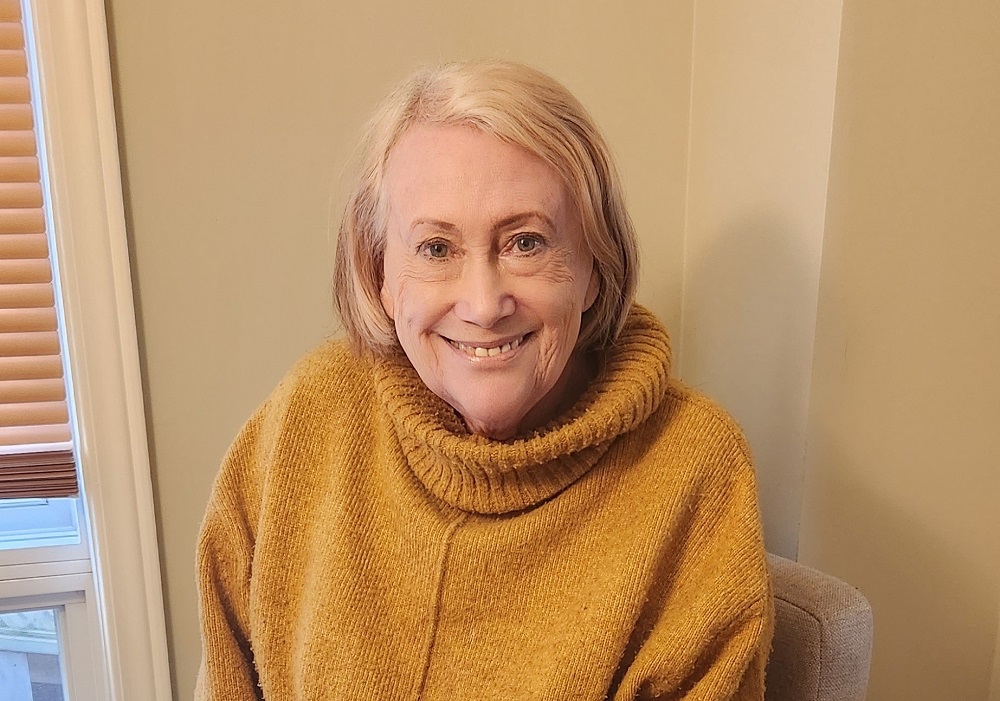With top cancer research institutes and a public healthcare system, Canada is poised to be a world leader in researching and providing innovative life-saving cancer treatments, called precision or targeted therapies. But this can only happen if federal, provincial and territorial governments remove barriers and allow more cancer patients access to both treatments and the tests necessary to determine if they are candidates for precision therapies.

This is the conclusion from a new report on precision medicines published by CONECTed, a network of oncology patient groups, where my organization is a member. The report, Getting Better, Faster: The Case for Optimizing Access to Precision Medicines in the Wake of the Revolution in Cancer Care provides 23 recommendations to overcome roadblocks for accessing care.
With cancer being the leading cause of death in Canada — accounting for about 28 per cent of all deaths — precision oncology treatments are desperately needed to reduce mortality and improve quality of life. Precision medicine, a form of personalized medicine, uses diagnostics called biomarker testing which allows the cancer to be examined for genetic mutations that identify specific characteristics about a person’s tumour; the testing helps diagnose the cancer, plan individually tailored treatments and assess treatments or make a prognosis.
The most common treatments in precision oncology are small-molecule drugs, biologics, monoclonal antibodies and immune-oncology. Precision medicine has resulted in significant advances in survival rates for many cancers, including chronic myelogenous leukaemia, lung cancer, colorectal cancer and malignant melanoma. Advanced staged cancer patients who receive personalized treatment based on their tumour’s biomarker results not only live longer but may well achieve a better quality of life due to fewer treatment serious side effects.
Unfortunately, not all patients have access to biomarker testing and, for those that do, not all results are being reported promptly to help inform clinical decisions in a timely manner. This means that patients do not know if precision medicine would help them. In addition, even those patients who do get biomarker testing in a timely manner often cannot access the treatments they need because public government reimbursement plans will not pay for them. The role that precision medicine should play — ensuring the best treatment for the right patient when they need it — is still out of reach for so many.
“When I was diagnosed with melanoma in 2003, there were no treatment options. In 2007, melanoma was one of the first cancers to get precision medicine, saving my life,” says Kathleen Barnard, Founder and President of Save Your Skin Foundation. “Precision oncology marks a major advancement in cancer treatment from the days of cut, burn and chemo; it is like moving from oil lamps to high-efficiency light bulbs, transforming the way we diagnose and treat cancer, offering patients targeted therapies with fewer adverse side effects,” she says. “And it’s wonderful to see these advances expanding into other cancers.”
The truth is, Canada is under-resourced when it comes to making our clinical trial and approval processes work at the speed needed by patients, resulting in delays on a number of fronts, according to experts. We need to better streamline and support our health research ecosystem in Canada.
The report found that Canada’s fragmented health care delivery is another barrier because each province/territory makes its own decisions about which treatments to fund, leaving Canadians with unequal access to the medications they need with some cancer patients struggling to pay for life-saving therapies on their own.
Federal and provincial/territorial governments must work with cancer patient groups to assess health systems across the country to ensure alignment and prevent duplication and inefficiencies across the various systems, the report concludes. The report also calls for a change in focus for healthcare funding. Value-based health care is a new vision of the health care system where the focus of every stakeholder is on improving value for patients relative to the dollars spent, providing better patient outcomes and a more cost-effective health care system.
The number of people diagnosed with cancer is rising each year. In 2021, it was estimated that in Canada, 44 per cent of men and 43 per cent of women would develop cancer in their lifetime, and about 26 per cent of men and 22 per cent of women were expected to die as a result.
Timely access to precision medicines can transform the lives of people in Canada with cancer. This report presents a realistic path forward for making the changes necessary for precision medicine to leap forward in Canada. It offers great promise not only for cancer patients and their families, but the healthcare system as a whole.
***
About the author:

Louise Binder is the health policy consultant for Save Your Skin Foundation.




